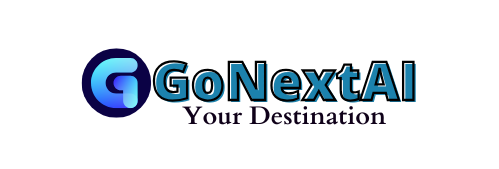Revolutionizing Healthcare: AI’s Industry-Specific Innovations Unveiled
In recent years, Artificial Intelligence (AI) has emerged as a transformative force across numerous industries, with healthcare standing at the forefront of this revolution. The fusion of AI with healthcare has not only streamlined medical processes but also enhanced patient outcomes, heralding a new era of precision medicine and operational efficiency. From diagnostics to drug discovery, AI’s applications in healthcare are reshaping the landscape, addressing age-old challenges while introducing unprecedented possibilities.
See More How to Earn Money Online with AI Tools Efficiently
The Role of AI in Diagnostics
One of the most profound impacts of AI in healthcare lies in diagnostics. Traditional diagnostic methods often rely on subjective human interpretation, which can be prone to errors. AI-driven systems, powered by machine learning and deep learning algorithms, have revolutionized diagnostic accuracy. For instance:
- Medical Imaging: AI algorithms analyze X-rays, MRIs, and CT scans with remarkable precision, identifying abnormalities such as tumors, fractures, and cardiovascular issues. Google’s DeepMind, for instance, developed an AI system that can detect over 50 eye diseases with an accuracy comparable to leading ophthalmologists.
- Pathology: AI-powered digital pathology tools assist pathologists in detecting cancerous cells, enabling faster and more accurate diagnoses. This reduces the time from detection to treatment, improving patient survival rates.
Personalized Medicine
AI has paved the way for personalized medicine, where treatments are tailored to individual patients based on their genetic makeup, lifestyle, and medical history. Key developments include:
- Genomic Analysis: AI systems analyze vast genomic datasets to identify genetic markers associated with diseases, predicting a patient’s susceptibility to specific conditions. This empowers clinicians to recommend preventive measures or targeted therapies.
- Drug Optimization: AI-driven platforms predict how patients will respond to medications, minimizing adverse effects and maximizing therapeutic efficacy. This approach is particularly valuable in oncology, where precision treatments significantly improve outcomes.
Accelerating Drug Discovery
The traditional drug discovery process is notoriously time-consuming and expensive, often taking over a decade and billions of dollars to bring a single drug to market. AI is revolutionizing this domain by:
- Identifying Drug Candidates: Machine learning models analyze chemical compounds to predict their potential as drug candidates. Companies like Insilico Medicine and Atomwise have leveraged AI to identify promising molecules in a fraction of the time required by conventional methods.
- Repurposing Existing Drugs: AI algorithms analyze existing drugs to identify new therapeutic applications, accelerating the development of treatments for emerging diseases such as COVID-19.
AI in Surgery
AI’s integration into surgical procedures has elevated the precision and safety of operations. Key advancements include:
- Robotic-Assisted Surgery: Surgical robots powered by AI enhance surgeons’ capabilities, allowing for minimally invasive procedures with reduced recovery times. Intuitive Surgical’s da Vinci system exemplifies how AI is redefining the surgical landscape.
- Preoperative Planning: AI systems analyze patient data to create detailed surgical plans, reducing the risk of complications and improving outcomes.
See More Start Earning From AI Chatbots
Enhancing Patient Care
AI’s role in patient care extends beyond clinical settings, improving patient experiences and accessibility to healthcare services:
- Virtual Health Assistants: AI-powered chatbots provide patients with 24/7 support, answering queries, scheduling appointments, and offering medication reminders. Babylon Health’s AI chatbot is a notable example.
- Remote Monitoring: Wearable devices equipped with AI algorithms monitor vital signs and alert healthcare providers to potential issues, enabling proactive interventions for chronic disease management.
Tackling Administrative Burdens
Administrative inefficiencies are a significant pain point in healthcare, contributing to increased costs and clinician burnout. AI addresses these challenges by:
- Automating Documentation: Natural Language Processing (NLP) tools transcribe and summarize clinical notes, freeing up physicians to focus on patient care.
- Streamlining Operations: AI systems optimize appointment scheduling, resource allocation, and supply chain management, enhancing the efficiency of healthcare facilities.
Ethical and Regulatory Considerations
While AI’s potential in healthcare is immense, it also raises ethical and regulatory concerns. Ensuring data privacy, addressing algorithmic biases, and establishing clear regulatory frameworks are critical to fostering trust and ensuring equitable access to AI-driven innovations.
The Road Ahead
The integration of AI in healthcare is still in its early stages, but its transformative potential is undeniable. As technology advances, the collaboration between AI developers, clinicians, and policymakers will be instrumental in overcoming barriers and unlocking new possibilities. The future of healthcare promises to be one where AI empowers providers and patients alike, delivering care that is more precise, efficient, and accessible than ever before.
See More 10 AI-Powered Ways to Boost Your Income Today
Artificial Intelligence is revolutionizing healthcare, addressing longstanding challenges and unveiling groundbreaking innovations. From enhancing diagnostics to personalizing treatment, AI’s impact is evident across every facet of the industry. By embracing these advancements responsibly, the healthcare sector can usher in a new era of medical excellence, ultimately improving lives worldwide.
Read More The Role of AI in Building Healthy Habits


1 Comment